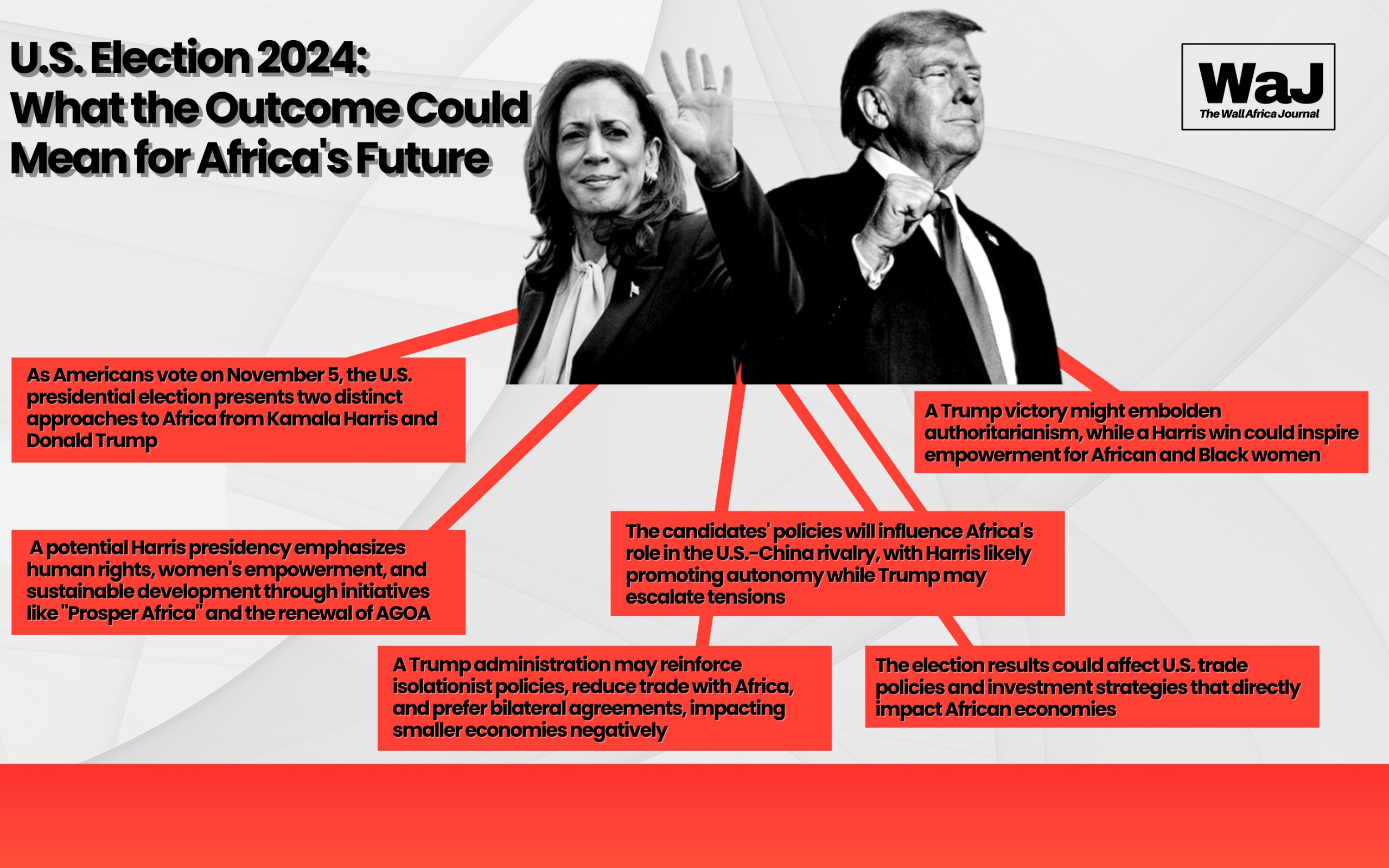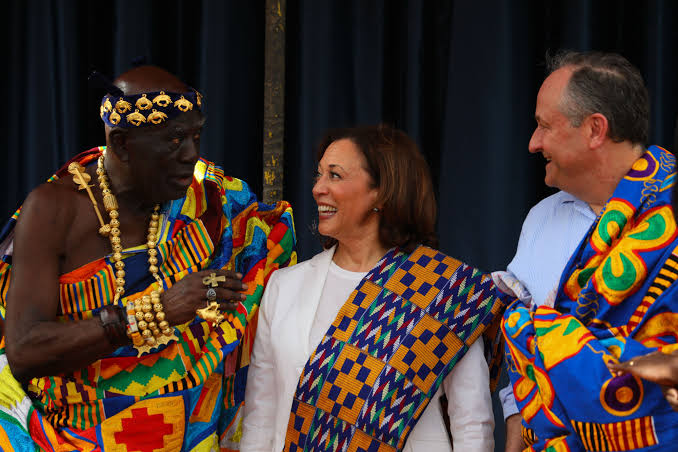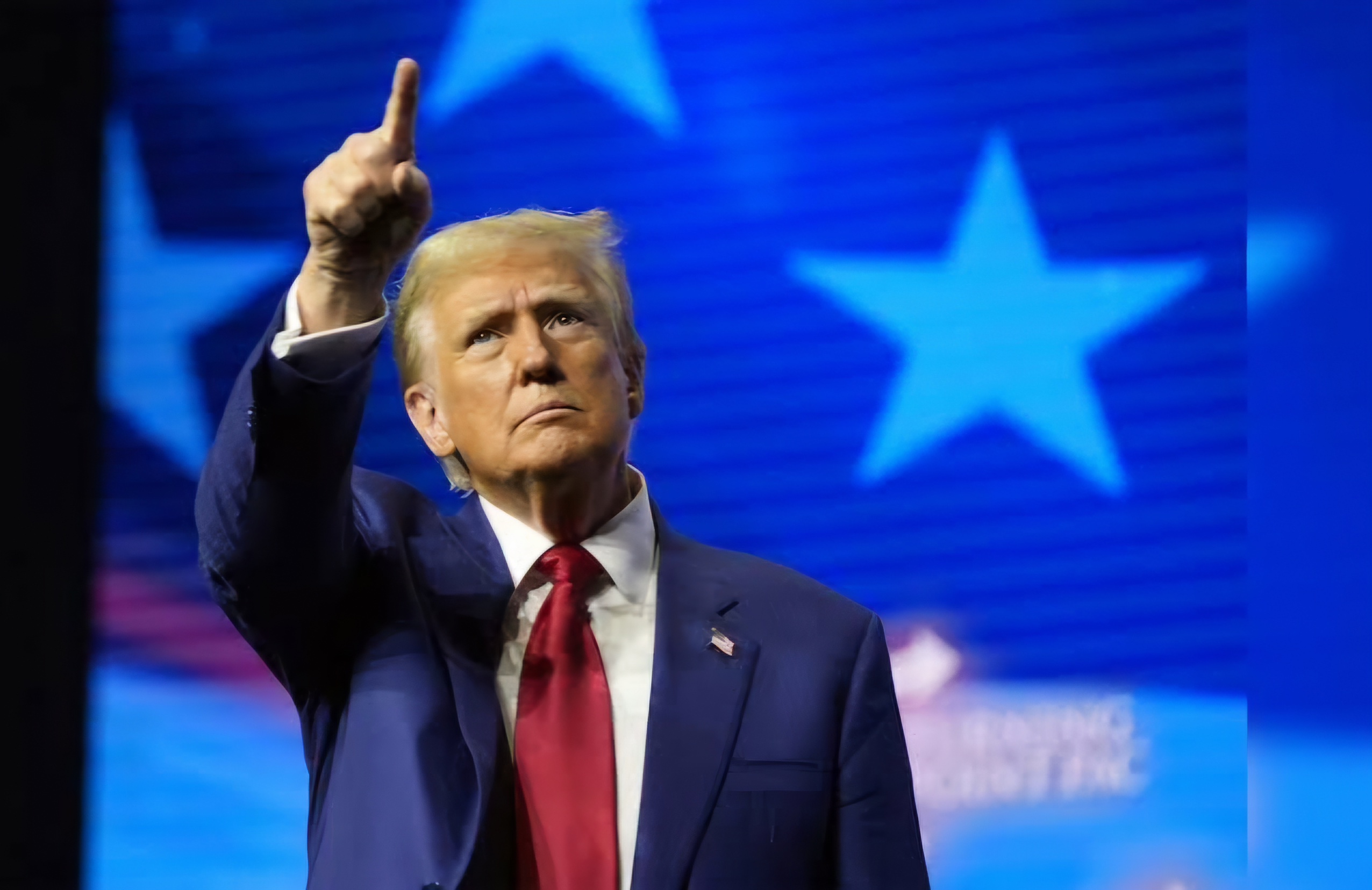As Americans prepare to cast their votes on November 5, the outcome of the U.S. presidential election is poised to have significant impacts on Africa. Vice President Kamala Harris and former President Donald Trump are actively campaigning, but their potential presidencies offer contrasting visions for the continent’s future.

A Kamala Harris presidency is expected to adopt a more empathetic and cooperative U.S. approach to Africa. Harris is likely to prioritize human rights, anti-corruption efforts, and women’s empowerment, focusing on inclusive and sustainable development that fosters African cultural and creative industries. Her administration could leverage the “Prosper Africa” initiative to promote long-term economic growth, laying the groundwork for sustained trade and investment. Professor Etse Sikanku from Ghana’s University of Media, Arts, and Communication highlights that a Harris administration would likely renew the African Growth and Opportunity Act (AGOA), which grants duty-free access to the U.S. market, countering China’s expanding influence on the continent. Harris’s approach may also support African nations’ autonomy in navigating the complex U.S.-China rivalry, encouraging a multilateral approach that respects African agency.

Conversely, a Trump presidency may reinforce America’s isolationist stance, potentially reducing trade with Africa and implementing stricter immigration measures. Trump’s approach could focus on removing regulatory barriers to encourage American businesses to invest, particularly in Africa’s resource-rich countries, though this might disadvantage smaller economies. Trump’s preference for bilateral deals over multilateral agreements may bring mixed results for Africa, potentially benefiting some nations but leaving others behind. Additionally, a Trump administration would likely heighten the U.S.-China rivalry on the continent, pressuring African nations into difficult diplomatic choices. Ray Hartley from the South African Brenthurst Foundation warns that this approach may negatively impact economic relations between the U.S. and Africa.

Despite these contrasts, some experts suggest that U.S. policy towards Africa may remain largely stable, with both administrations keen to maintain America’s strategic interests in the region. The recent U.S.-Africa summit in Washington and Harris’s visit to Ghana earlier this year underscore America’s enduring commitment to the continent.
Political analyst Asanda Ngoasheng from South Africa notes that the U.S. election will also resonate with global issues, including abortion rights and race relations. The expansion of the global gag rule under the Trump administration significantly affected abortion rights, a policy likely to continue if Trump wins.
Ultimately, whether it’s a Trump or Harris victory, the election carries symbolic weight that transcends policy implications. A Trump win could embolden authoritarian tendencies globally, while a Harris presidency might inspire African and Black women, symbolizing the potential for achievement and empowerment. As the world watches the polls, Africa’s future hangs in the balance, reflecting the broader stakes of this pivotal election.


